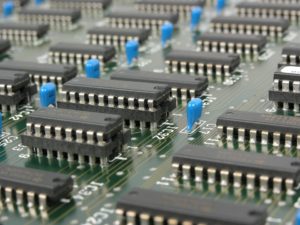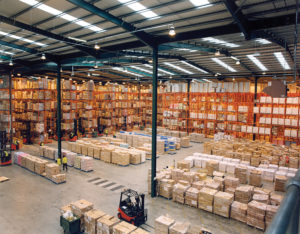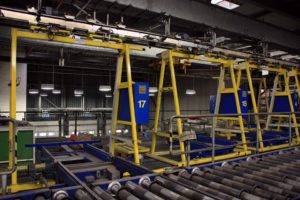
Technology and modern business go hand-in-hand, and that’s as true for the steel and metal fabrication sector as it is for anyone else. It can help with every aspect of the business, from buying and storing raw materials to tracking manufacturing and dealing with customers.
If you run a steel service center or metals manufacturer, there are various innovative tech solutions that can help you to improve efficiency and fully optimize your business.
Computer-Aided Manufacturing (CAM) and Computer-Aided Design (CAD)
CAD and CAM are common throughout the metal fabrication sector as they produce a high level of accuracy that is not seen with traditional methods. Using CAD programs, designers can create detailed models of parts and products before CAM programs take over to fabricate the item to the designer’s exact specifications.
It reduces lead time and total costs, and means there are fewer steps involved with the design and production process.
The Internet of Things
A couple of years ago, researchers found that three-in-five manufacturers had adopted the Internet of Things (IoT), and the numbers have been rising since then. IoT offers complete connectivity across the entire business, collecting and analyzing data to promote optimization.
For instance, sensors can be integrated into equipment to track production, determine the capability and state of the equipment, and estimate when it needs to be maintained/replaced and where it can be improved. IoT sensors can also connect CAM and CAD software to 3D printers and CNC machines, greatly reducing production time.
The concept of IoT is nothing new, and the technology creating these business-wide connections has been available for years. But, as with everything else, it gets cheaper and better with each passing year, and modern iterations provide the sort of seamless connections that business owners could have only dreamed about a couple of decades ago.
Artificial Intelligence (AI) and Machine Learning (ML)
As noted in our Trends to Watch guide, AI and ML are drastically improving the steel and metals industry. These technologies have been making news for their impact on art, education, healthcare, and various other sectors over the last couple of years, but they are also quietly changing the way that raw materials are bought, stored, and processed.
ML gathers vast amounts of data and uses AI to analyze this data and learn more about the industry, the business, and its customers. These technologies are vital in sales forecasting, for instance, where company and industry trends are studied to predict future demand. These predictions can then influence how much stock the company buys and holds.
Machine learn also influences the maintenance and repair cycle, while AI uses this data to automate key tasks prone to human error, process invoices/payments, and upsell products.
Automation
Automation isn’t just about reducing labor costs. It can perform key tasks more efficiently, reducing production time and eliminating costly mistakes. It can also help a company to navigate labor shortages, improve production accuracy, and lower product costs.
As noted above, AI and ML play a role here, but automation goes much further than analytics and data entry.
Collaborative robots, known as “Cobots” have been a game-changer for manufacturers. Rather than taking over from human workers, these machines work alongside humans to make their work easier and safer.
Cobots can handle heavy or potentially hazardous materials, perform repetitive tasks on an assembly line, and even assist during the quality control process. The initial cost can be high, but the improved efficiency means they pay for themselves very quickly.
What’s more, as robotic technology is constantly improving and competition is always increasing, these machines keep getting cheaper and provide an affordable automated solution for businesses of all sizes.
3D Printing and Customization
3D printing allows for something known as additive manufacturing, which offers more customization than ever before.
Customers can request additions and changes, and manufacturers can test prototypes, create add-ons, and develop personalized touches without relying on outsourcing or expensive machines and processes.
Modern 3D printers use various materials (including powders, plastics, and metals) to build 3D models one layer at a time. There is very little waste, and except for the initial cost of the machine and the nominal cost of materials, it’s generally an affordable solution.
3D printing technology has advanced a great deal over the last decade or so, making it cheaper, better, and more versatile, and providing opportunities for companies of all sizes and budgets.
Customer-Relationship Management (CRM)
In the past, keeping your customers happy meant hiring and training support teams and maintaining large supply chains. These days, automated systems can step in at every stage of the order process.
AI can process large amounts of data to better understand the company before using it to create FAQs and operate chatbots. It can also upsell, trigger promotional emails and text messages, and keep the consumer happy and engaged using support tickets, loyalty programs, and detailed how-to guides.
Higher-Quality Materials
Machines, robots, and advanced software tools aren’t the only things pushing the metal fabrication industry into a new age. Manufacturers also have a greater number of high-tech materials at their disposal, including steel that is stronger and denser, alloys that provide a balance of durability, strength, and affordability, and various composites.
Optimize Your Business with Enterprise Resource Planning (ERP)
The above technological advancements form part of something known as Industry 4.0, or the Fourth Industrial Revolution. Steam powered the first industrial revolution, the second ran on electricity, and the third signaled the emergence of a digital world, but this time it’s all about data, analytics, automation, and greater connectivity between humans and technology.
Enterprise resource planning (ERP) systems are powering this new technological age. ERP is a single solution that promotes communication and connectivity across the business, assisting with everything from supply chain management and controlling production costs to supporting finances and accounting.
RealSTEEL™ provides some of the most advanced ERP solutions in the steel and metal manufacturing sector, incorporating various tools to support your business, including:
- Plate processing
- Sheeting and leveling
- Multi-line processing
- Cut-to-length
- Metal framing
To learn more about RealSTEEL™, check out its many features here. You can also contact us for a free demo to see this advanced manufacturing solution in action.




